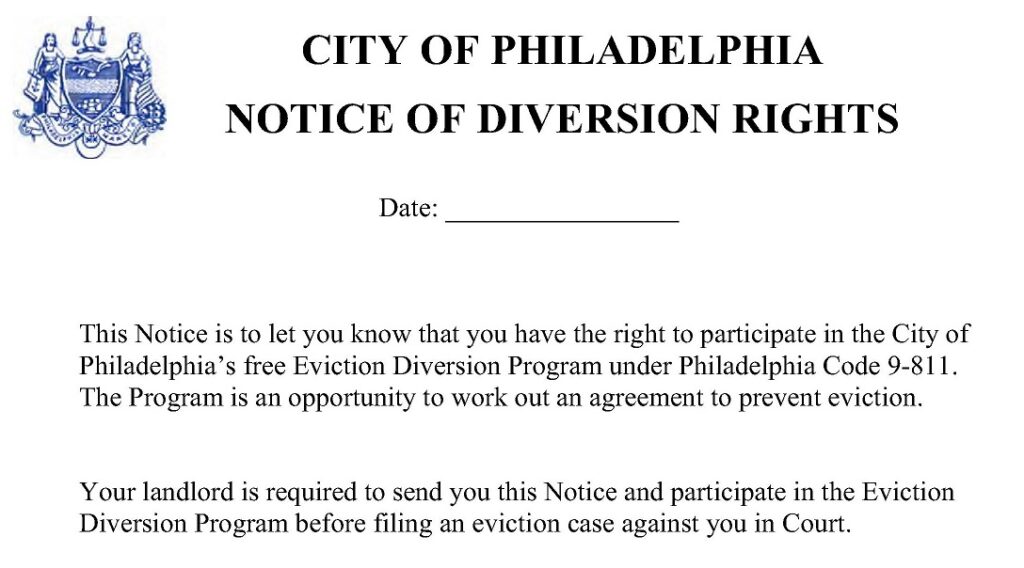HUD Continuum of Care Housing
Leave a CommentTo find out if you live in a Continuum of Care housing program, you may look up your rental property or program.
Some HUD Continuum of Care subsidies are administered by the Philadelphia Housing Authority (PHA). If your property is on the PHA project-based list, you can find information about your subsidy in PHA Project-Based Housing.
For Continuum of Care Rapid Rehousing (RRH) go to Rapid Rehousing.
Recertifications
- Regular Recertification. HUD Continuum of Care Housing tenants recertify their household information and income every year. They usually submit information and documents in person at the management or program office.
- Interim Recertification. If there are changes in household size or income between recertifications, HUD Continuum of Care tenants must request an interim recertification within 30 days to add/remove a household member or increase/decrease the rent.
- Rent Calculation. HUD Continuum of Care tenant rent is calculated as approximately 30% of their monthly income minus a utility allowance. All tenants who pay for utilities have a utility allowance included in their rent calculation.
- For more information about recertifications and rent calculation in HUD Continuum of Care Housing, go to the HUD Handbook 4350.3 Chapter 7, Sections 1 and 2.
Transfers / Moves
Transferring
- Requesting transfer. Tenants who want to move from their HUD Continuum of Care housing unit may submit a transfer request to their property manager or program manager.
- For Project-Based Continuum of Care Housing, the property manager may facilitate transfer to a different unit within the same development or another development owned by the same owner. For transfers to a different development, tenants or their case managers may request that the Office of Homeless Services (OHS) facilitate a transfer.
- For Tenant-Based Continuum of Care Housing, the case manager or program manager may facilitate transfer to a different unit at the end of the lease term. Tenants may also terminate the lease early and transfer for good cause, such as a reasonable accommodation for disability.
- Domestic Violence Transfers. If a tenant needs to move for reasons related to violence in the home from an intimate partner or family member, the Violence Against Women Act (VAWA) requires the owner, property manager or program manager to assist with a transfer. The Office of Homeless Services may also assist with such transfers.
Moving out
- For Project-Based HUD Continuum of Care housing, if a tenant is evicted or moves out of their unit voluntarily, they lose their housing subsidy.
- For Tenant-Based HUD Continuum of Care housing, if a tenant is evicted or moves out of their HUD Continuum of Care unit voluntarily, they may try to transfer their subsidy to a new unit. However, the program may move to terminate the tenant from the program for reasons relating to the eviction or move out. See subsidy termination below.
- For more information about transfers and moves in HUD Continuum of Care Housing, see the HUD Handbook 4350.3 Chapter 7 Section 3.
Repairs
- Requesting repairs. HUD Continuum of Care tenants may request repairs by phone or by mailing a letter to the property manager or owner. Case managers may also assist with requesting and advocating for repairs.
- Inspections. The Office of Homeless Services may inspect the property, issue violations and stop subsidy payments to the owner, if the property does not meet Housing Quality Standards.
- Complaint Line. Tenants may submit complaints regarding repairs or other administrative issues by contacting the Office of Homeless Service at 215-686-4700 or ohs-generalinfo@phila.gov.
- For more information about a tenant’s legal rights to address repair issues, go to Repairs.
Eviction
- Good Cause Protection (Project-Based Continuum of Care Housing only). The HUD Continuum of Care owner or property manager must renew leases at the end of a lease term and can only terminate a lease for non-payment of rent or breach of a condition of the lease.
- For additional information about the eviction process, go to Evictions.
Subsidy Termination
- Grounds. A HUD Continuum of Care owner or program may terminate a tenant’s subsidy for failing to follow program rules. Common reasons for termination include: failure to recertify, failure to comply with house rules or behavioral contracts, failure to comply with a payment agreement, failure to maintain utilities, or other breach of the lease agreement.
- Hearing Process. In terminating assistance to a program participant, the owner or program must provide a formal process that includes providing written notice of termination, a review of the decision in which the program participant is given the opportunity to present written or oral objections, and prompt written notice of the final decision.
- Hard to House Population Protection. The owner or program providing permanent supportive housing for hard-to-house populations of homeless persons must exercise judgment and examine all extenuating circumstances in determining when violations are serious enough to warrant termination so that a program participant’s assistance is terminated only in the most severe cases.
- For more details about Termination, see the Continuum of Care Interim Rule Section 578.91 or HUD Handbook 4350.3 Chapter 8 or get legal help.
Rules and Regulations
- The CoC Program Interim Rule outlines the regulations for Continuum of Care housing.
- The HUD Multifamily Housing Program Handbook 4350.3 outlines the rules for Continuum of Care housing recertifications, rent calculation and inspections when PHA is not involved.
- Some Continuum of Care housing developments are also Low Income Housing Tax Credit (LIHTC) housing, so tenants may also be asked to comply with LIHTC regulations as established by the Pennsylvania Housing Finance Agency (PHFA).
